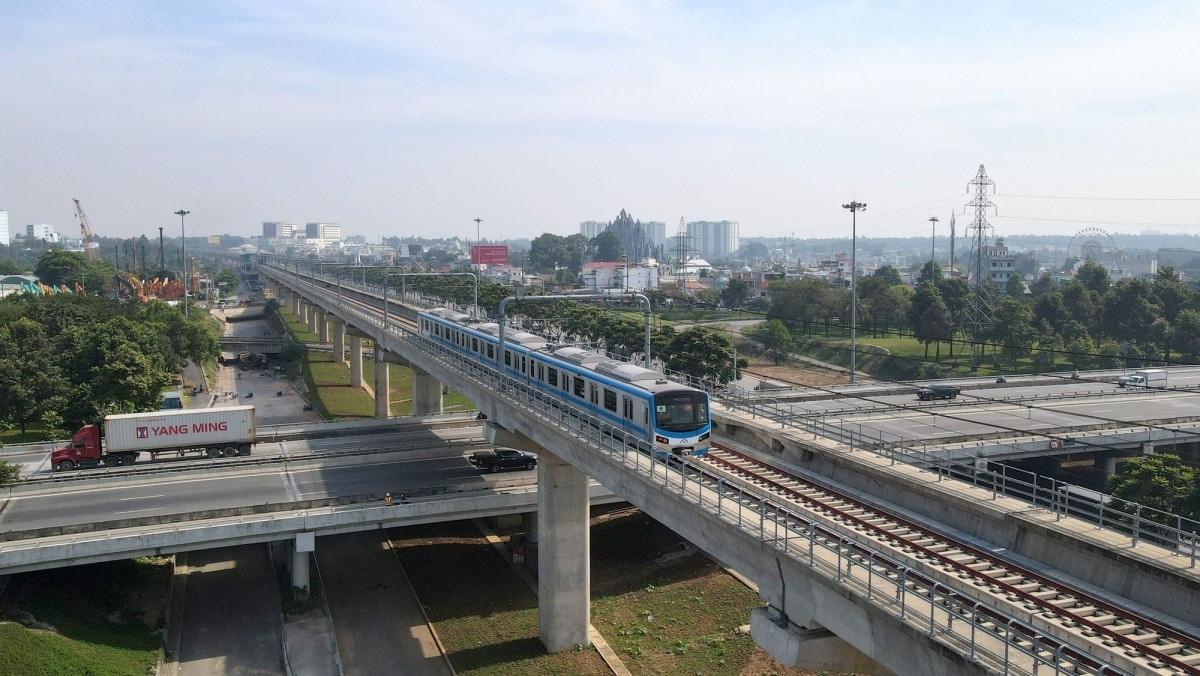

Metro line No.5 will be 8.89km long including 7.46km long underground, with a total investment of more than VND40,070 billion or more than US$1.7 billion.
Investment capital is set to be sourced from the Spanish Government, Asian Development Bank (ADB), European Investment Bank (EIB), and German Development Bank (KfW).
According to the Ho Chi Minh City’s Management Authority for Urban Railways (MAUR), the feasibility study of the project has been submitted to the Ministry of Planning and Investment for consideration.
Ho Chi Minh City has evaluated and approved the cost of hiring consultants to verify the project, and the dossier has been submitted to the Ministry of Planning and Investment for consideration.
Metro line 3a will be 11km long that span 11 underground stations with a total investment of more than VND47,800 billion or more than US$2 billion. The project is expected to use Japanese ODA loans, through the Japan International Cooperation Agency (JICA).
The Metro line 3a project was submitted to the Ministry of Planning and Investment and relevant agencies in late 2016, but it has yet to be approved due to financial issues.
The Ministry of Finance has not yet agreed on the conditions related to the debt repayment mechanism, debt repayment plan, and responsibility commitment when the special terms for economic partnership (STEP) are chosen.
MAUR and JICA held a working session in March 2024 to discuss issues related to ODA capital. At the meeting, JICA announced the possibility of considering applying a mixed loan (STEP and General Term) for the project.
MAUR said it will continue to work with JICA on the possibility of relaxing STEP loan conditions, while considering applying the mixed loan solution for the project.
Metro line No.2 will be 5.8km long with six underground stations that stretches from the city centre to the Thu Thiem new urban area. The project will cost approximately US$1.3 billion sourced from Korean ODA loans.
MAUR said it has worked with the Export-Import Bank of Korea (KEXIM) on the possibility of financing the project. During a meeting with KEXIM in March 2024, the city leadership gave opinions on receiving non-refundable ODA capital for the project.
MAUR said that it will continue to coordinate with KEXIM to prepare scenarios for adjusting technical support plans in accordance with the Ho Chi Minh City Planning. It will complete the technical support project document and submit it to competent authorities for approval to receive non-refundable aid in 2024.
Under its approved development master plan, Ho Chi Minh City is anticipated to develop 8 metro lines and three ground tram or monorail lines with a total length of 220km and a total investment of nearly US$26 billion.
It has so far undertaken two metro line projects No.1 (from Ben Thanh market to Suoi Tien amusement park and from Ben Thanh market to Tham Luong).
VOV